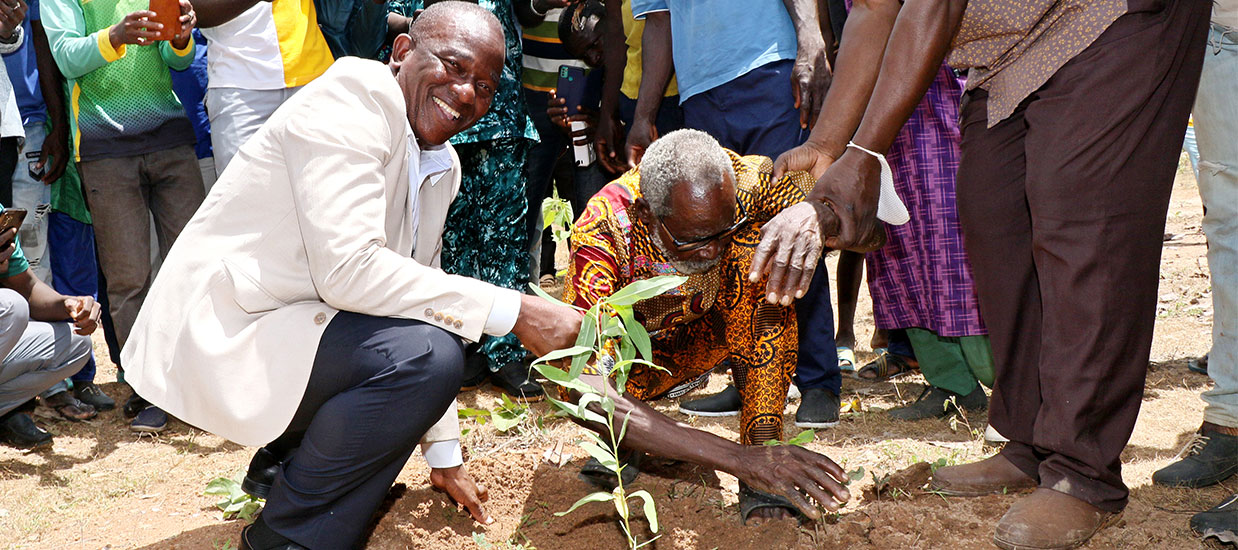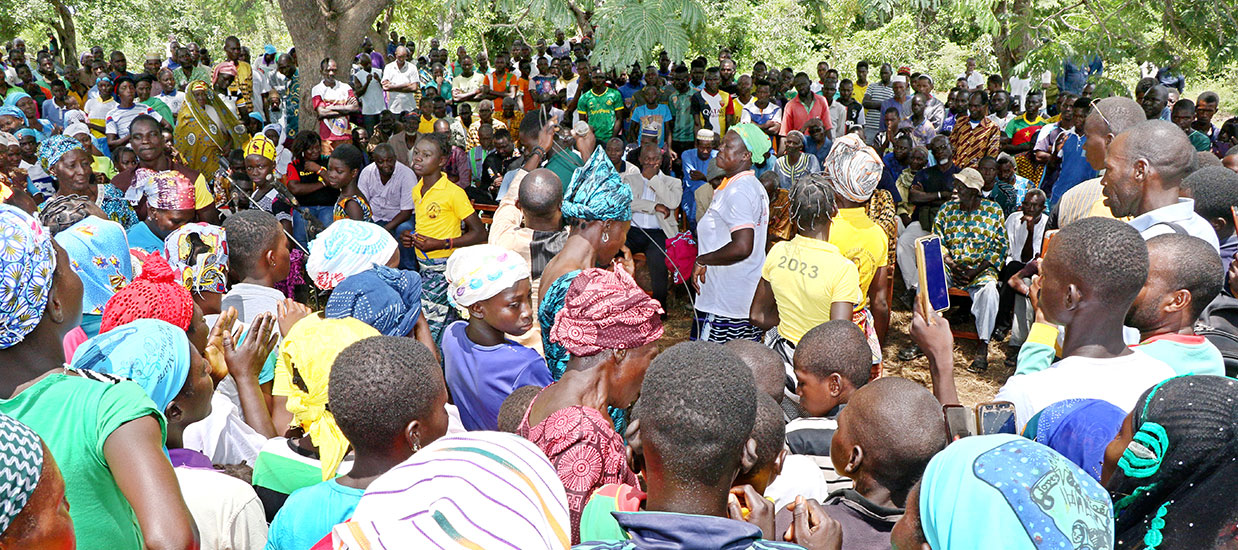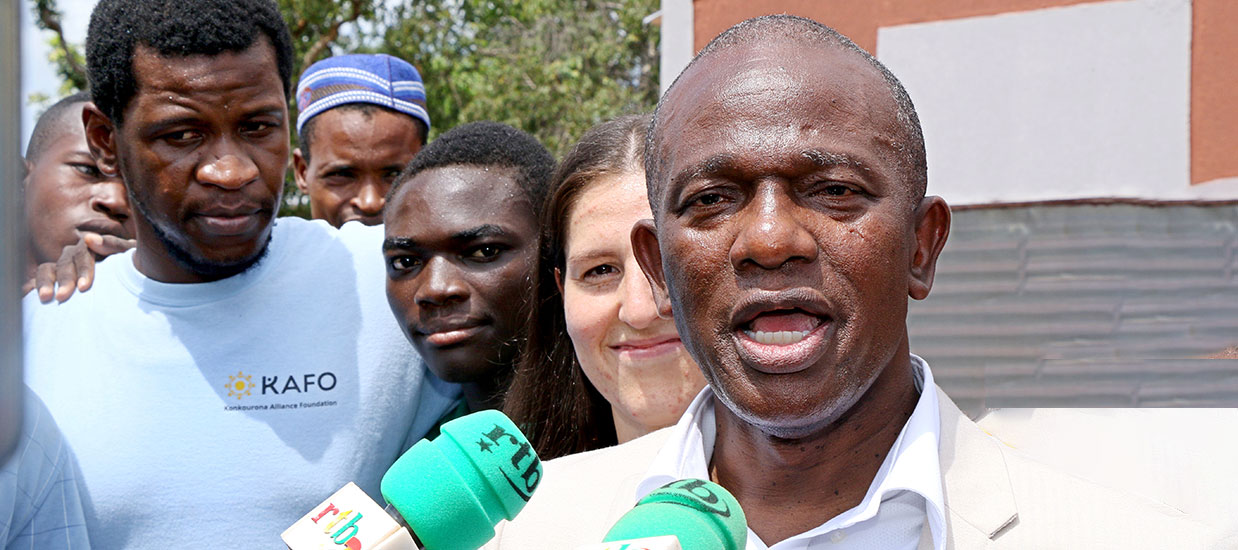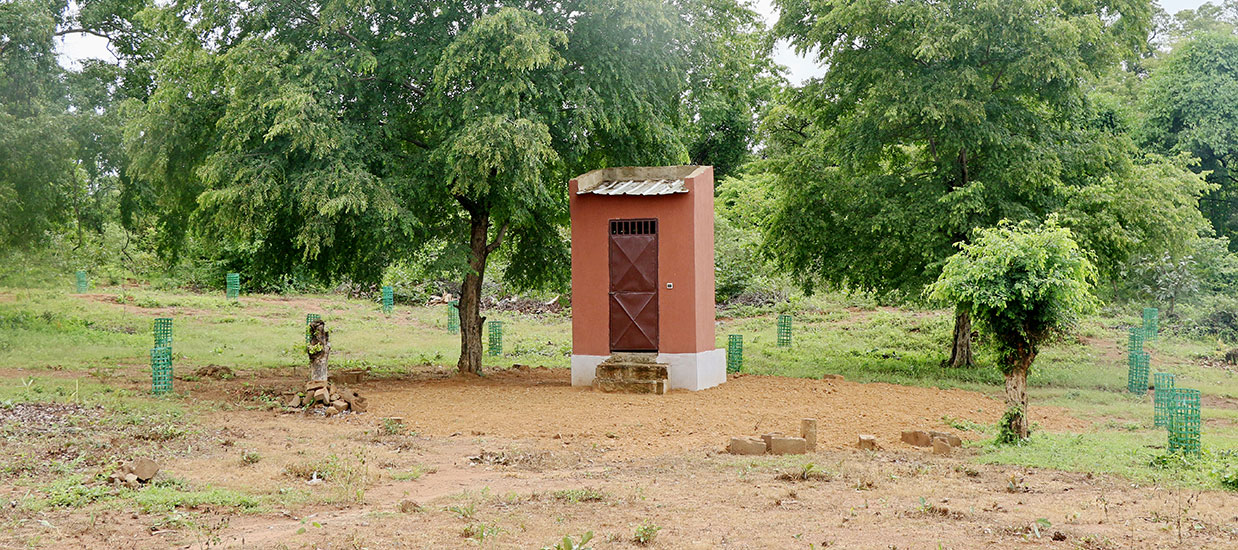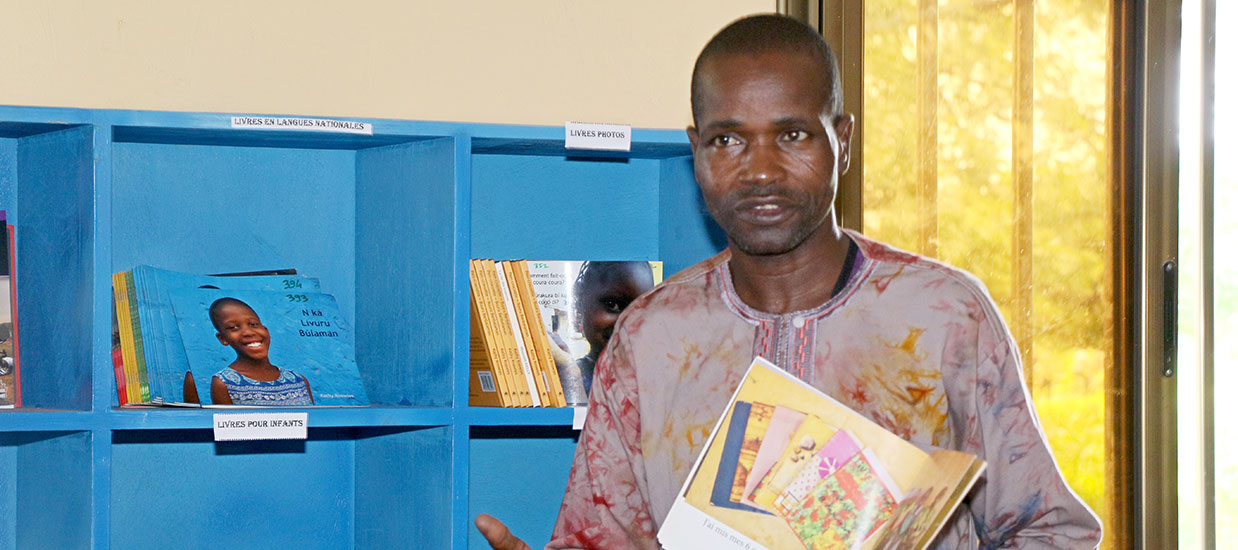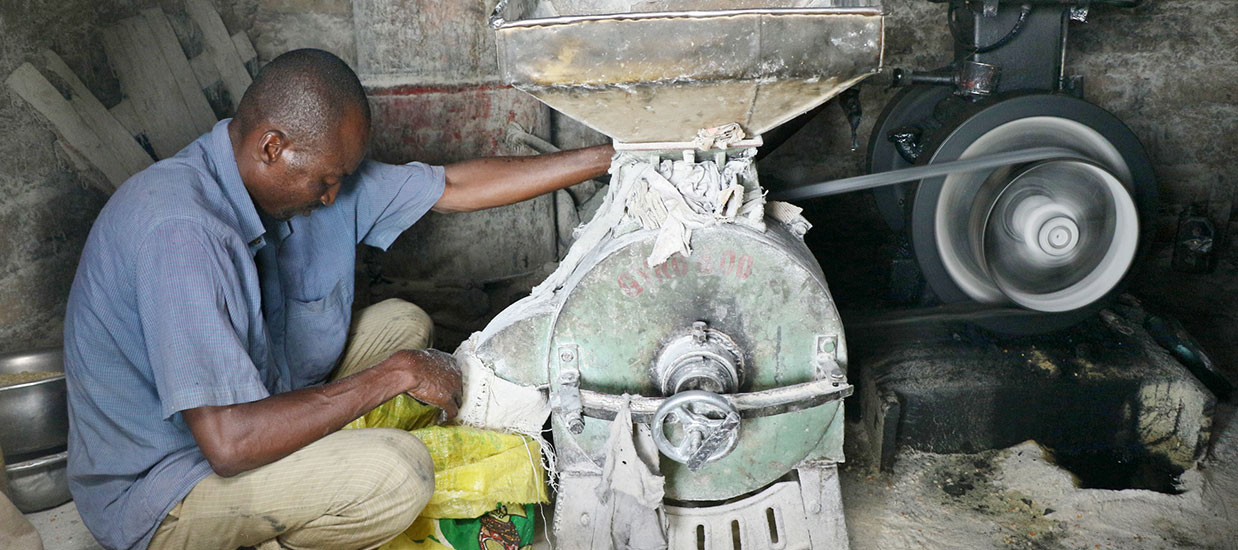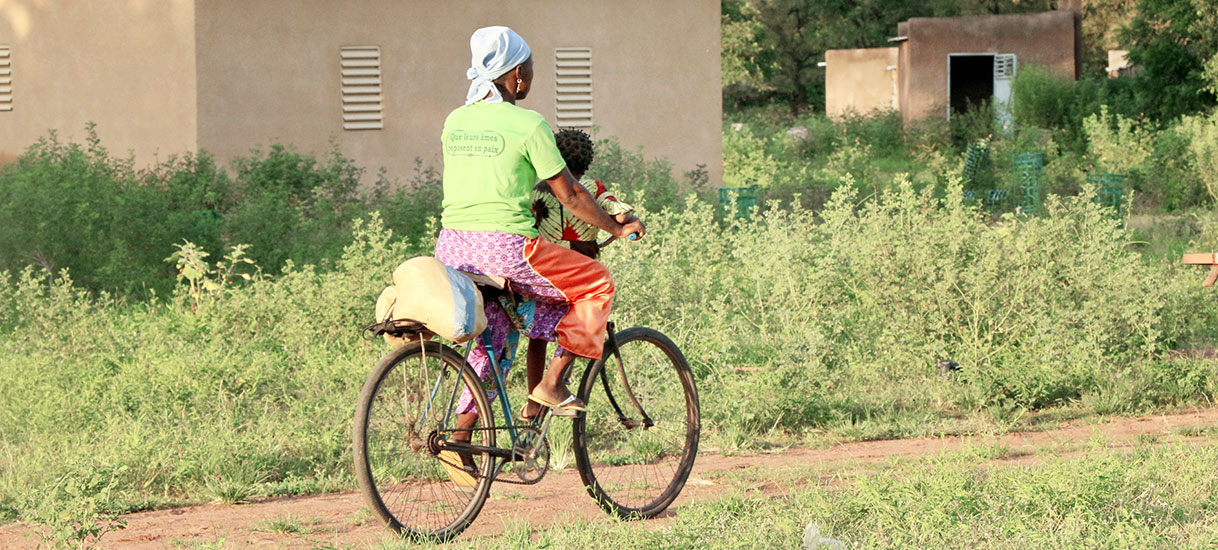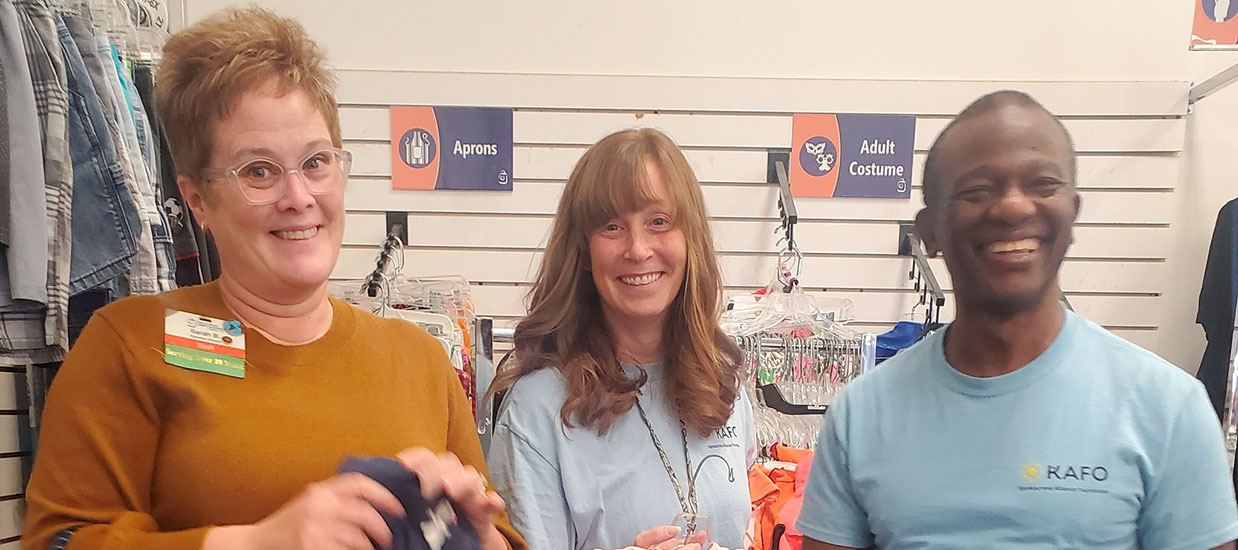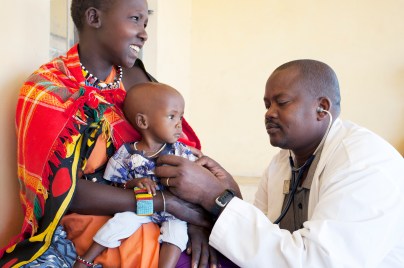In Burkina Faso, a personal mission to make a difference in one community
Merck colleagues found non-profit to provide critical resources for a village in one of the poorest countries in the world
November 23, 2022
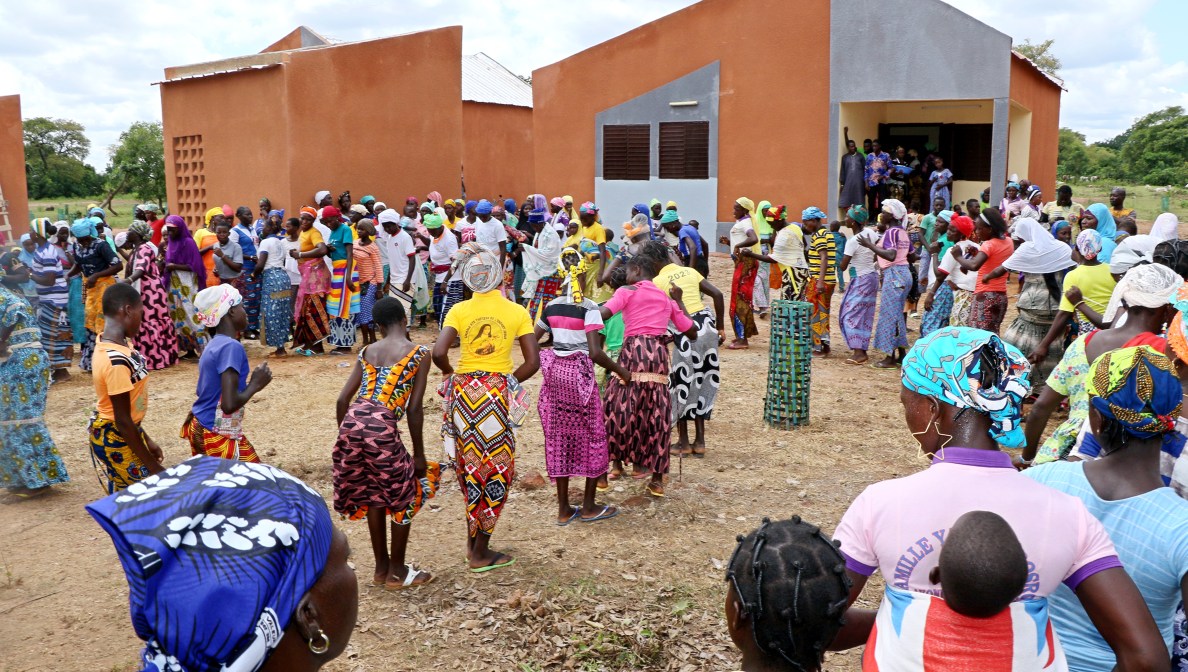
Challenging life experiences united two Merck colleagues — Jules Millogo and Cathy Hoath — on a mission to create opportunities and break the cycle of poverty in the small village of Konkourona, in the West African country of Burkina Faso.
Homelessness, hunger and illness in Konkourona
Konkourona is where Millogo, director, medical affairs, global vaccines, grew up with extremely limited access to health care, education, clean water and the bare necessities. It’s also where he witnessed six of his siblings pass away from preventable diseases. Millogo’s father was a strong believer in education and sent him to attend the nearest school in another village, which was hours away from Konkourona on foot.
Despite experiencing much communal trauma growing up, Millogo graduated from medical school and began his career in a Burkina Faso province far from Konkourona, serving as the only doctor for a population of 250,000.
“I somehow managed to overcome bouts of homelessness, hunger and illness from infectious diseases that often come with extreme poverty,” said Millogo. “I grew up knowing that I needed to make a difference in Konkourona and bring opportunities and hope to the people living there.”
Forming Konkourona Alliance Foundation (KAFO) to fight for opportunity and equity
When Millogo joined Merck, he met Cathy Hoath, senior director of regulatory affairs international, vaccines. Hoath was born in Booth Memorial Hospital for Unwed Mothers in Philadelphia, after her teenage birth mother was thrown out of her parents’ home and was unable to find a job or apartment. That experience fuels Hoath’s drive to fight for equity and opportunities — for women, children and all who want to create better lives for themselves and their communities in the U.S. and around the world.
In 2019, during a meeting with the World Health Organization to register our company’s Ebola Zaire vaccine in the countries at highest risk in Africa, Millogo and Hoath began discussing ways they could support development in Konkourona. A few months later, they co-founded the non-profit organization Konkourona Alliance Foundation (KAFO), Inc.
“It was the perfect convergence of my professional and personal worlds, giving me the chance to fight for greater opportunity and equity for some of the world’s most vulnerable people.”
- Cathy Hoath
Because remote villages like Konkourona are often referred to in development efforts as “the last mile,” they named their effort “The First Mile Development Program.” The people of Konkourona are KAFO’s highest priorities.
KAFO builds foundation for education
Millogo and Hoath have met many like-minded people — both within our company and beyond — who have become supporters of KAFO since its founding. And they’ve made good progress in Konkourona.
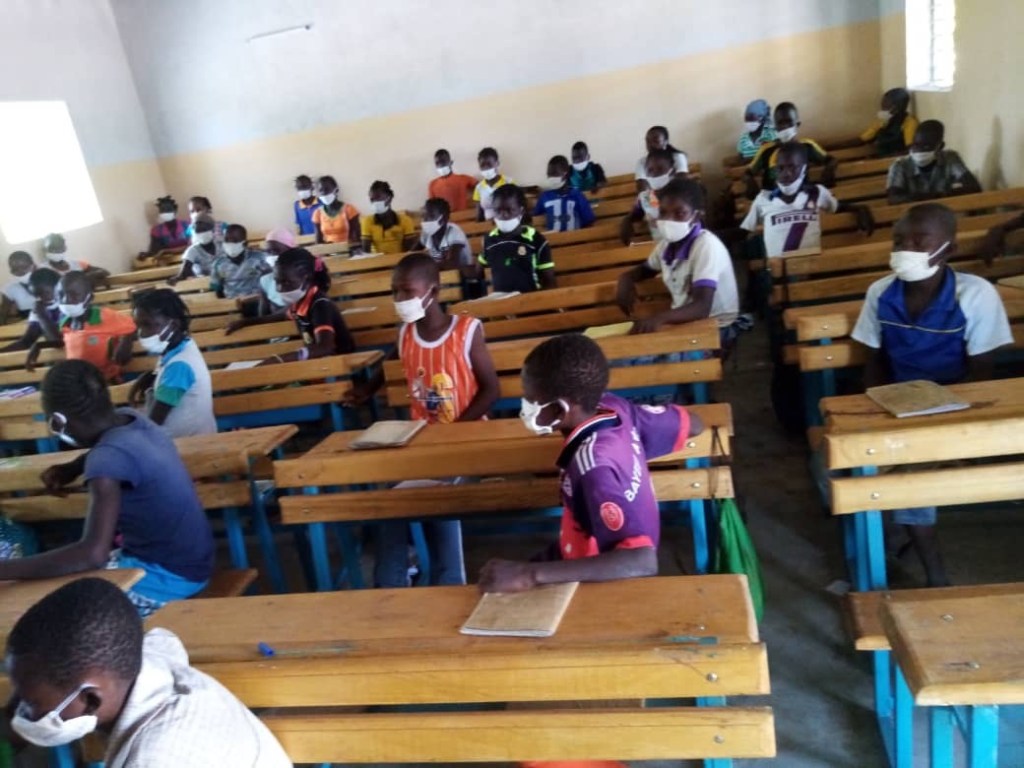
New classroom with desks and textbooks for each child
KAFO has built three new classrooms — reducing class sizes from approximately 90 to 45 students — as well as an office and housing for teachers. It also renovated an existing building for use as a library.
Approximately 400 students are now receiving assistance, from books and tutoring to tuition and bicycles so older students can make the two-hour journey to the closest upper-level school.
Students are making educational progress
Previously, only one or two students per year progressed to middle school. Now, in just a couple of years, over 80 students are continuing their education at middle school and beyond.
“In 2020, we began providing books for each child because there were not nearly enough. We also opened the school at night — the only place in the village with electricity — and offered tutoring services. That year, 20 children passed the middle school entrance exam — which is unheard of in any school in this sub-region,” said Hoath. “In the past two years, 63 additional students have progressed to middle school.”
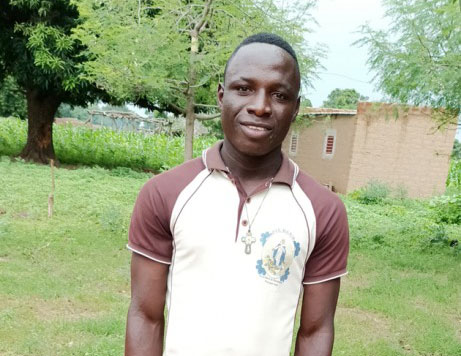
Eric is a mentor to the younger children and a role model for what can be achieved with an opportunity and hard work.
One of those students is Eric, who couldn’t afford tuition for middle school. His father died, and he had to help his mother, so he got a job on Millogo’s brother’s farm. Now, through KAFO’s sponsorship, he’s going to high school. He’s also helping to sustain the program long term by mentoring younger children and working with the team on the ground to secure books and bicycles.
He’s now thinking about what he may want to study in college — a dream that would not have existed just several years ago.
“We have high hopes for this thoughtful young man,” said Millogo.
Improving access to health care and clean water
The maternal and child mortality rates in Burkina Faso are among the highest in the world. In addition to a lack of health care resources, the villagers also had very little access to clean water.
“One of the biggest problems we face in Konkourona is water-borne diseases,” said Millogo. “People drink water from wherever they can find it — open ponds or other sources contaminated with human and animal waste and other pathogens.”
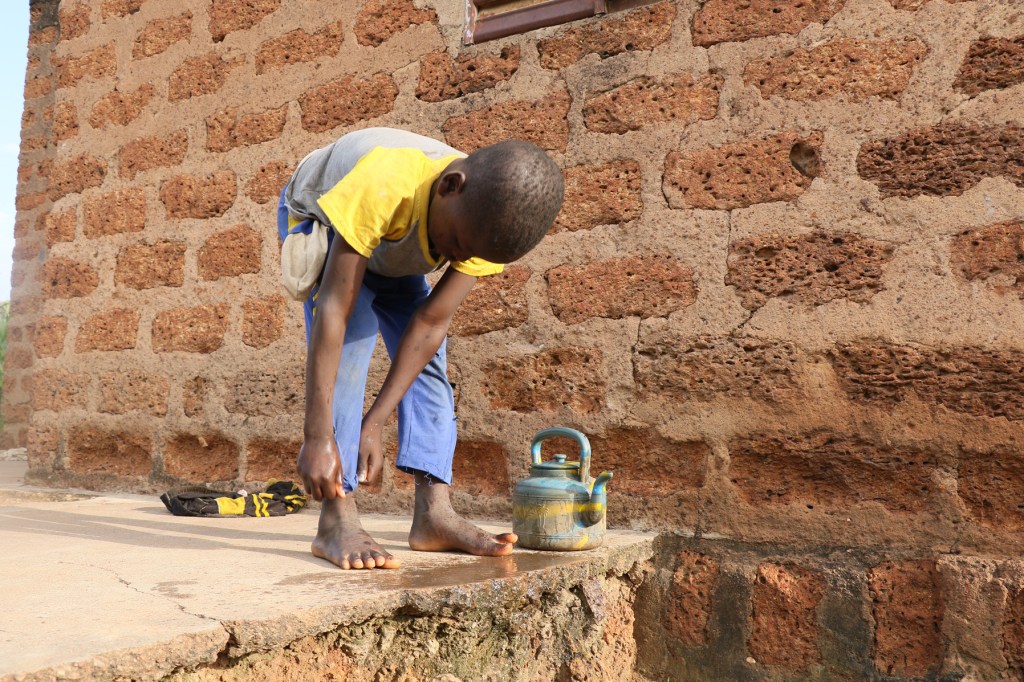
Clean water is now widely available for drinking and washing
Working closely with the Mami Siara Na Association, a community-led organization created in 2019 to partner with KAFO to lead and sustain development efforts on the ground, the team has now constructed three water towers, three community fountains, a health center for mothers and children, a separate facility for primary care, a pharmacy, latrines, housing for health care workers and an incinerator.
“Providing access to clean water in Konkourona is practically a revolution.”
Jules Millogo
“And the health care facility, where we can provide critical maternal care, immunizations, and primary services for children and community members — like caring for illnesses, wounds, etcetera — will have a significant impact for this community in many ways,” said Millogo.
Providing economic development and hope for a better future
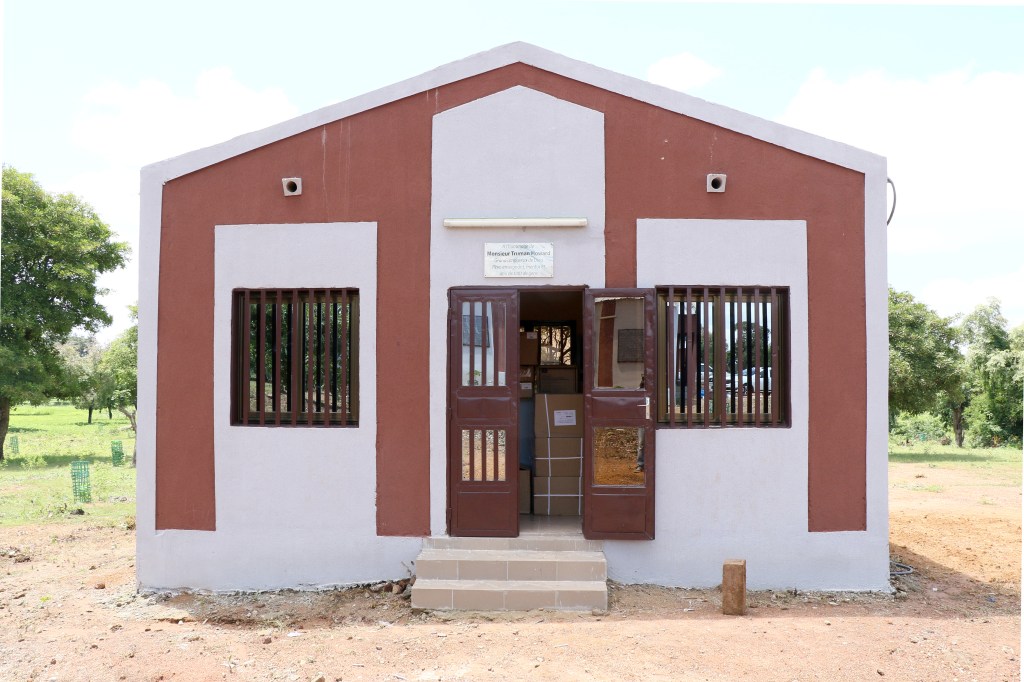
Konkourona’s new — and first — pharmacy
The improvements in education and health care have sparked local economic development as well. There are new jobs in Konkourona to ensure continued access to education, health care, water and sanitation, not to mention those related to construction activities.
Over the next five years, Millogo and Hoath plan to build a middle school, a technical school and a high school, as well as housing for teachers in these schools. They also plan to expand the health center.
“We’re all in on this program and learning every day how to do new things — things we don’t have experience in — to make progress in Konkourona,” said Millogo. “We’re fortunate that we’ve received so much support from so many people to help make these important visions a reality. And, we’re just getting started.”
Learn more about Konkourona Alliance Foundation – Empowering a Village and how you can help sponsor a child.
